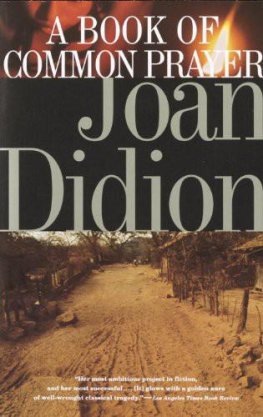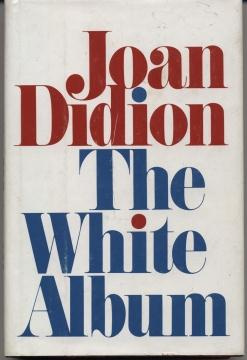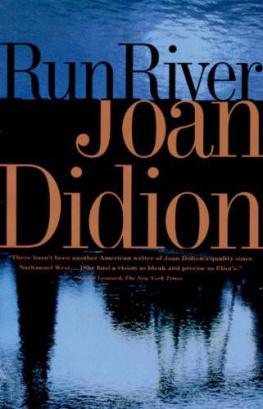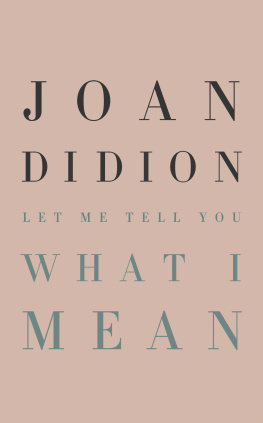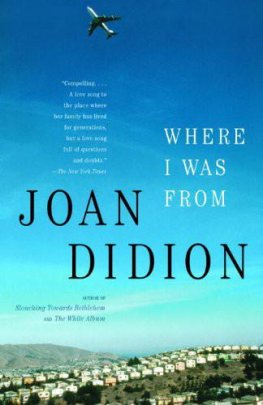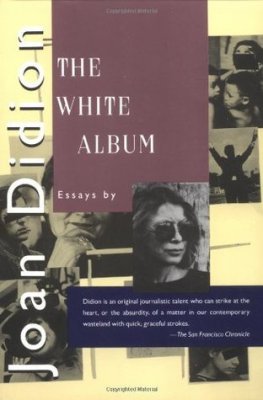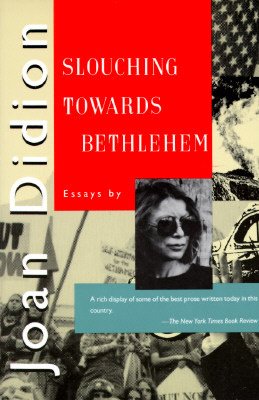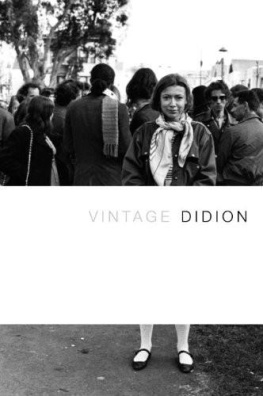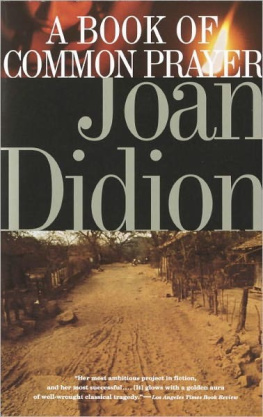Joan Didion
A Book of Common Prayer
This book is for Brenda Berger Garner,
for James Jerrett Didion,
and also for Allene Talmey and Henry Robbins.
I WILL BE HER WITNESS.
That would translate ser su testigo, and will not appear in your travelers phrasebook because it is not a useful phrase for the prudent traveler.
Here is what happened: she left one man, she left a second man, she traveled again with the first; she let him die alone. She lost one child to history and another to complications (I offer in each instance the evaluation of others), she imagined herself capable of shedding that baggage and came to Boca Grande, a tourist. Una turista. So she said. In fact she came here less a tourist than a sojourner but she did not make that distinction.
She made not enough distinctions.
She dreamed her life.
She died, hopeful. In summary. So you know the story. Of course the story had extenuating circumstances, weather, cracked sidewalks and paregorina, but only for the living.
Charlotte would call her story one of passion. I believe I would call it one of delusion. My name is Grace Strasser-Mendana, ne Tabor, and I have been for fifty of my sixty years a student of delusion, a prudent traveler from Denver, Colorado. My mother died of influenza one morning when I was eight. My father died of gunshot wounds, not self-inflicted, one afternoon when I was ten. From that afternoon until my sixteenth birthday I lived alone in our suite at the Brown Palace Hotel. I have lived in equatorial America since 1935 and only twice had fever. I am an anthropologist who lost faith in her own method, who stopped believing that observable activity defined anthropos. I studied under Kroeber at California and worked with Lvi-Strauss at So Paulo, classified several societies, catalogued their rites and attitudes on occasions of birth, copulation, initiation and death; did extensive and well-regarded studies on the rearing of female children in the Mato Grosso and along certain tributaries of the Rio Xingu, and still I did not know why any one of these female children did or did not do anything at all.
Let me go further.
I did not know why I did or did not do anything at all.
As a result I retired from that field, married a planter of San Blas Green coconut palms here in Boca Grande and took up the amateur study of biochemistry, a discipline in which demonstrable answers are commonplace and personality absent. I am interested for example in learning that such a personality trait as fear of the dark exists irrelative to patterns of child-rearing in the Mato Grosso or in Denver, Colorado. Fear of the dark can be synthesized in the laboratory. Fear of the dark is an arrangement of fifteen amino acids. Fear of the dark is a protein. I once diagrammed this protein for Charlotte. I dont quite see why calling it a protein makes it any different, Charlotte said, her eyes flickering covertly back to a battered Neiman-Marcus Christmas catalogue she had received in the mail that morning in May. She had reached that stage in her sojourn when she lived for mail, sent away for every catalogue, filled out every coupon, wrote many letters and received some answers. I mean I dont quite see your point.
I explained my point.
Ive never been afraid of the dark, Charlotte said after a while, and then, tearing out a photograph of a small child in a crocheted dress: This would be pretty on Marin.
Since Marin was the child Charlotte had lost to history and was at the time of her disappearance eighteen years old, I could conclude only that Charlotte did not care to pursue my point.
Also, for the record, Charlotte was afraid of the dark.
Give me the molecular structure of the protein which defined Charlotte Douglas.
In at least two of the several impenetrably euphemistic Letters from Central America which Charlotte wrote during her stay here and tried unsuccessfully to sell to The New Yorker, she characterized Boca Grande as a land of contrasts. Boca Grande is not a land of contrasts. On the contrary Boca Grande is relentlessly the same: the cathedral is not Spanish Colonial but corrugated aluminum. There is a local currency but the American dollar is legal tender. The politics of the country at first appear to offer contrast, involving as they do the colorful Latin juxtaposition of guerrilleros and colonels, but when the tanks are put away and the airport reopens nothing has actually changed in Boca Grande. There are no waterfalls of note, no ruins of interest, no chic boutiques (Charlotte went so far as to rent a storefront for one such boutique, but my son Gerardo turned the storefront to his own purposes and it has been since the October Violence a Pentecostal reading room) to provide dramatic cultural foil to voodoo in the hills.
In fact there is no voodoo in the hills.
In fact there are no hills, only the flat bush and the lifeless sea.
And the light. The opaque equatorial light. The bush and the sea do not reflect the light but absorb it, suck it in, then glow morbidly.
Boca Grande is the name of the country and Boca Grande is also the name of the city, as if the place defeated the imagination of even its first settler. At least once each year, usually on the afternoon of the Anniversary of Independence, the Boca Grande Intellectual Union sponsors a debate, followed by a no-host cocktail party, as to who that first settler might have been, but the arguments are desultory, arbitrary. Information is missing here. Evidence goes unrecorded. Every time the sun falls on a day in Boca Grande that day appears to vanish from local memory, to be reinvented if necessary but never recalled. I once asked the librarian at the Intellectual Union to recommend for Charlotte a history of Boca Grande. Boca Grande has no history, the librarian said, and he seemed gratified that I had asked, as if we had together hit upon a catechistic point of national pride.
Boca Grande has no history, I repeated to Charlotte, but again Charlotte did not quite see my point. Charlotte was at that time preparing a Letter describing Boca Grande as the economic fulcrum of the Americas. It was true that planes between, say, Los Angeles and Bogot, or New York and Quito, sometimes stopped in Boca Grande to refuel, and paid an inflated landing fee. It was also true that passengers on such flights often left a dollar or two in the airport slot machines during the time required for refueling, but revenue from an airport landing fee and eighteen slot machines did not seem to me to constitute, in the classical sense, an economic fulcrum.
I suggested this to Charlotte.
Boca Grande exported copra, Charlotte said. Principally your own.
Boca Grande did export copra, principally my own, and, in about the same dollar volume, Boca Grande also exported parrots, anaconda skins, and macram shawls.
What I was overlooking entirely, Charlotte said, was what Boca Grande could become.
A Letter from a city or country, I suggested, was conventionally understood to be a factual report on that city or country, not as it could become but as it was.
Not necessarily, Charlotte said.
Another of Charlottes Letters covered the spirit of hope she divined in the Boca Grande favelas. Boca Grande has no favelas, even the word is Portuguese. There is poverty here, but it is obdurately indistinguishable from comfort. We all live in cinderblock houses. Charlotte wanted color. By way of color I could tell her only that the Hotel del Caribe was said to have Central Americas largest ballroom, but Charlotte was not satisfied with that. Nor with the light.
CALL THIS MY OWN LETTER FROM BOCA GRANDE.

